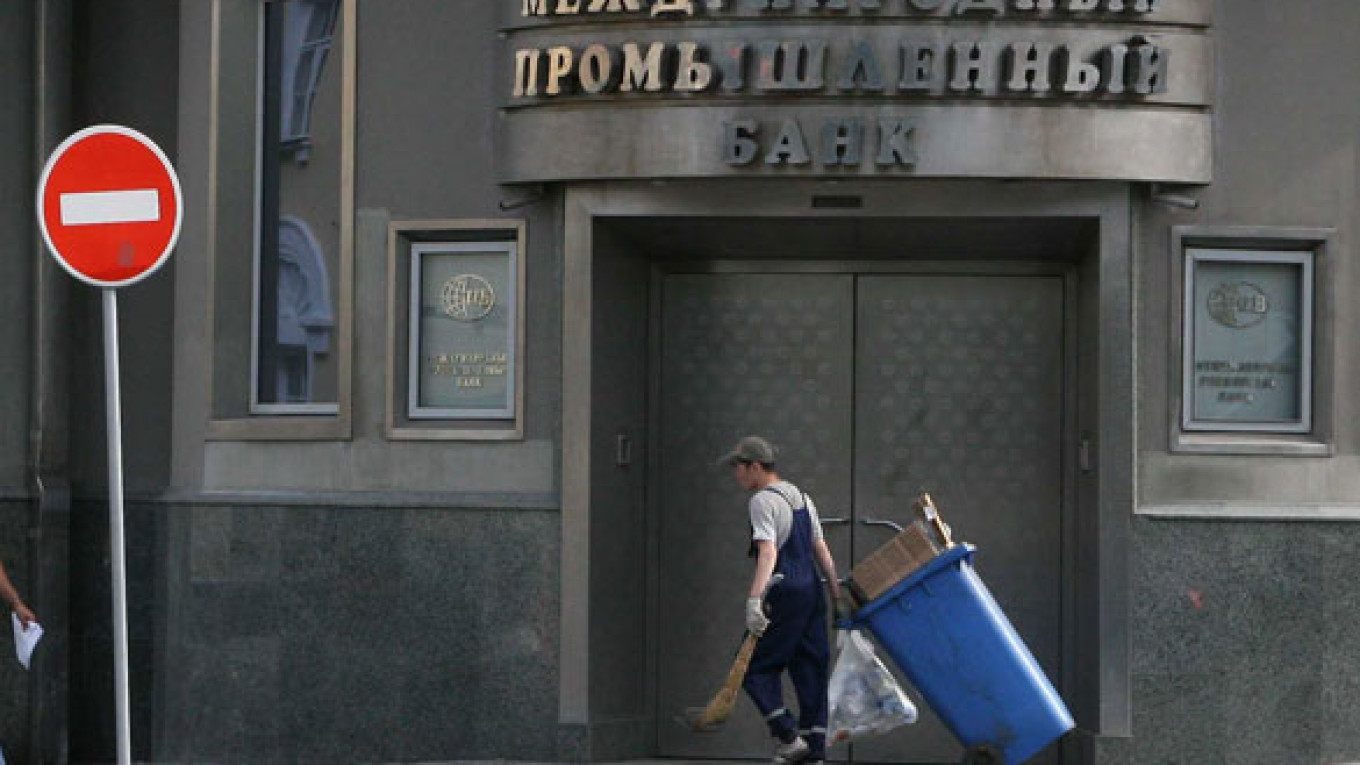International Industrial Bank, one of the country's top commercial banks, closed its doors Tuesday after the Central Bank revoked its license.
The bank, which is controlled by Sergei Pugachyov, a wealthy industrialist and Federation Council senator from the Tuva republic, is the first top-30 bank to be closed in the past several years.
"It's difficult to see why it's happening at this point," said Renaissance Capital analyst Mikhail Nikitin. "Formal grounds for canceling the bank's license likely existed a couple of months ago. Probably all the parties came to an agreement."
The Central Bank cited failure to meet obligations to creditors, lack of liquidity, risky financial policies and irregularities in financial statements as its motives for closing the bank.
Kommersant and other newspapers reported in June that the bank, also known as Mezhprombank, had failed to make a payment on an unsecured loan from the Central Bank. The Central Bank did not officially announce the bank's payment problem.
On July 6, the bank defaulted on 200 million euros ($274 million) in payments on eurobonds, one day after receiving a prolongation of a $1.05 billion loan from the Central Bank.
Nikitin said the Central Bank loan restructuring in July was not directly related to the situation with the eurobond payments.
The eurobond debt was restructured to allow payment next year, under somewhat improved terms, after a bondholders' vote in London later in July. The default was the first such instance by a Russian bank in recent years.
Following the eurobond default, the Central Bank decided to restructure International Industrial Bank's debt, demanding a security. Pugachyov offered two shipbuilding companies, Northern Wharf and Baltiisky Zavod, as collateral.
The shipbuilding enterprises are part of the United Industrial Corporation, which is controlled by Pugachyov.
Analysts say the Central Bank showed relative leniency in restructuring the debt. Nikitin said the Central Bank's silence in regard to the missed payment was "kind of unexpected in a situation like this." The bank's international rating had been downgraded repeatedly in expectation of its inability to make that payment.
Pugachyov has been widely reported in the international press to be a personal friend of Prime Minister Vladimir Putin and well connected in government circles.
But Pugachyov's luck later turned.
Vedomosti reported last week that Finance Minister Alexei Kudrin told the bank on Sept. 20 that, in order to retain its license, it should pay back debts to its clients within a few days, using another credit it had already obtained from VTB.
That move would have resulted in the forfeiture of another Pugachyov company, the Yenisei Industrial Co. Negotiations had been under way for weeks between VTB and International Industrial Bank on the conditions for credit, Vedomosti reported, citing unidentified sources.
International Industrial Bank was unable to satisfy the requirements set at the meeting with Kudrin.
Creditors have filed a number of suits against the bank. The largest suit, for more than $130 million, comes from steelmaker Severstal.
According to Vedomosti, Severstal had been involved in VTB's crediting of the bank, and had reached an agreement under which it would receive Yenisei Industrial's license to a coal mine in Elegesta, Tuva, in the event the bank did not settle its debts.
International Industrial Bank was founded in 1992. Pugachyov and? members of his family hold 81 percent. Pugachyov gave up his position as its chairman in January 2002, within a month of being confirmed to the Federation Council.
Pugachyov's ownership of the bank did not become public knowledge, however, until 2005, during a eurobond issue. Previously, seven companies, with which Pugachyov had no formal connection, were listed as the bank's owners, according to Kommersant.
Bank spokesman Dmitry Morochenko did not respond to written enquiries Tuesday.
A Message from The Moscow Times:
Dear readers,
We are facing unprecedented challenges. Russia's Prosecutor General's Office has designated The Moscow Times as an "undesirable" organization, criminalizing our work and putting our staff at risk of prosecution. This follows our earlier unjust labeling as a "foreign agent."
These actions are direct attempts to silence independent journalism in Russia. The authorities claim our work "discredits the decisions of the Russian leadership." We see things differently: we strive to provide accurate, unbiased reporting on Russia.
We, the journalists of The Moscow Times, refuse to be silenced. But to continue our work, we need your help.
Your support, no matter how small, makes a world of difference. If you can, please support us monthly starting from just $2. It's quick to set up, and every contribution makes a significant impact.
By supporting The Moscow Times, you're defending open, independent journalism in the face of repression. Thank you for standing with us.
Remind me later.


